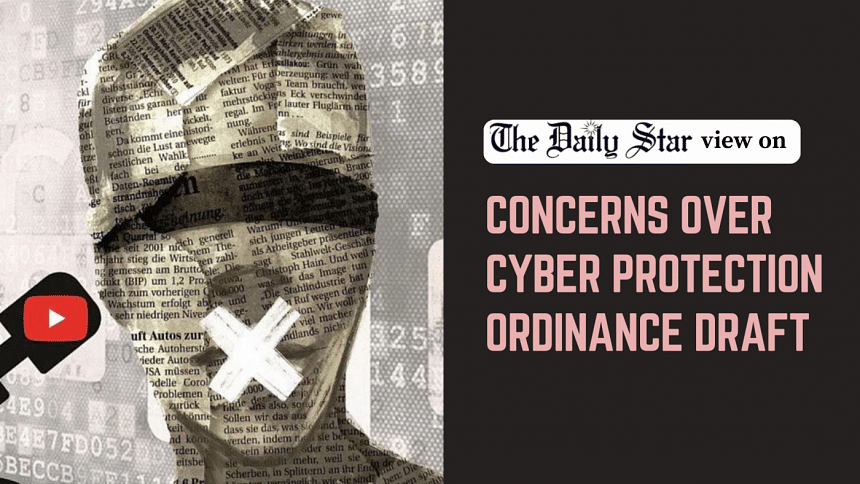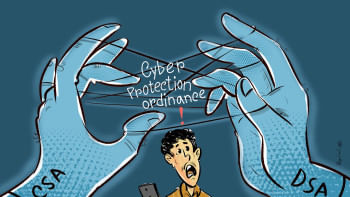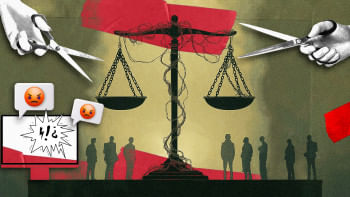Revise the draft of Cyber Protection Ordinance

We support the Transparency International Bangladesh's call to revise the recently approved draft of the Cyber Protection Ordinance by properly incorporating feedback from all key stakeholders. Rushing through the approval of such an important legal instrument without inclusive consultations is as problematic as some of its provisions. The TIB is the latest to join the growing chorus of experts taking aim at the ordinance that they say still retains some of the controversial provisions and terminologies of its predecessors—the Cyber Security Act (CSA) and the Digital Security Act (DSA). This calls for a renewed examination of the ordinance so that there is no scope for past transgressions to be repeated.
The TIB, which earlier criticised the short three-day window for public review before the draft's approval, has detailed its objections at a recent event. It pointed out that the ordinance largely preserves the regulatory and surveillance mechanisms of the CSA and DSA, posing potential threats to freedom of expression, media independence, and citizens' rights to dissent and organise. Among the contentious provisions is one that criminalises content that are "insulting", "harassing", and "defamatory", which it says could be weaponised to stifle legitimate criticism. Another provision criminalises "hurting" religious values and sentiments without defining these terms or incorporating safeguards for equality, non-communalism, and non-discrimination. Additionally, the ordinance grants "broad and unchecked powers" to a government figurehead to block online content.
These are all serious objections that need to be thoroughly checked. Over the last few days, several experts, including two columnists of this daily, have highlighted similar issues. While the removal of eight controversial sections of the CSA and the withdrawal of ongoing cases under it are positive developments, one columnist provided a detailed analysis showing how the shadow of the previous oppressive laws still hangs over the draft, risking a continuation of repressive practices. For example, Section 43 of DSA (Section 42 of CSA), which empowered police to search, seize and arrest without a warrant, has reappeared as Section 35 of the ordinance. Another columnist explained how criminalising "hurting" religious sentiments—using vague and broad terms—shrinks the scope for constructive discussions and risks deepening religious divisions.
In post-uprising Bangladesh, we need cyber legislation that effectively checks authoritarian tendencies, not perpetuate them under a new guise. While protections against the abuse of free speech are expected, unnecessarily criminalising speech undermines democracy. To address these concerns as well as the many overlapping, inherently contradictory issues lumped together under this ordinance, the TIB has proposed splitting it into three separate laws addressing computer-related crimes, cybersecurity, and online safety. This could be a viable approach, but the government must first prioritise proper consultation with key stakeholders, including rights defenders and journalists, before proceeding any further.


 For all latest news, follow The Daily Star's Google News channel.
For all latest news, follow The Daily Star's Google News channel. 










Comments